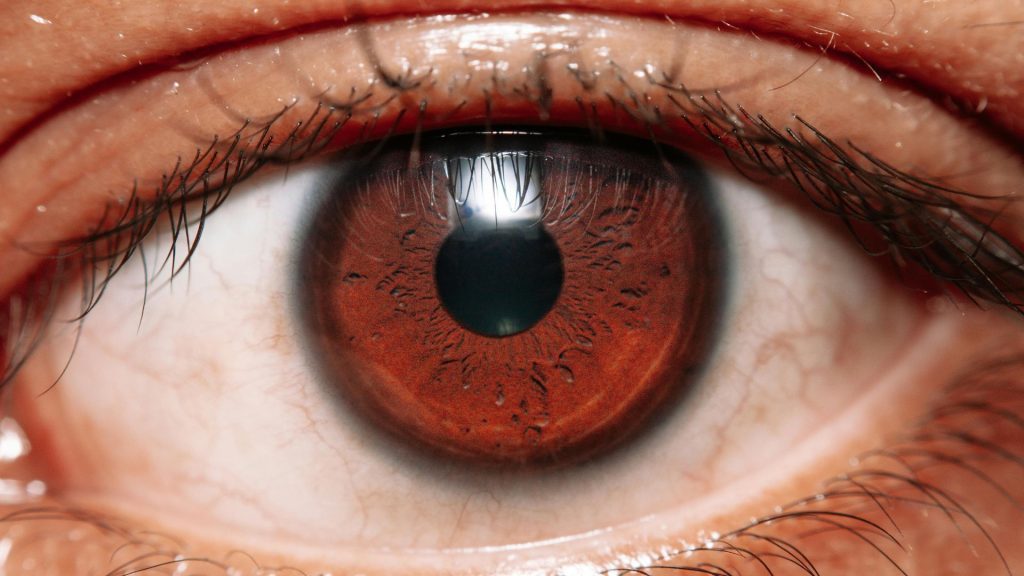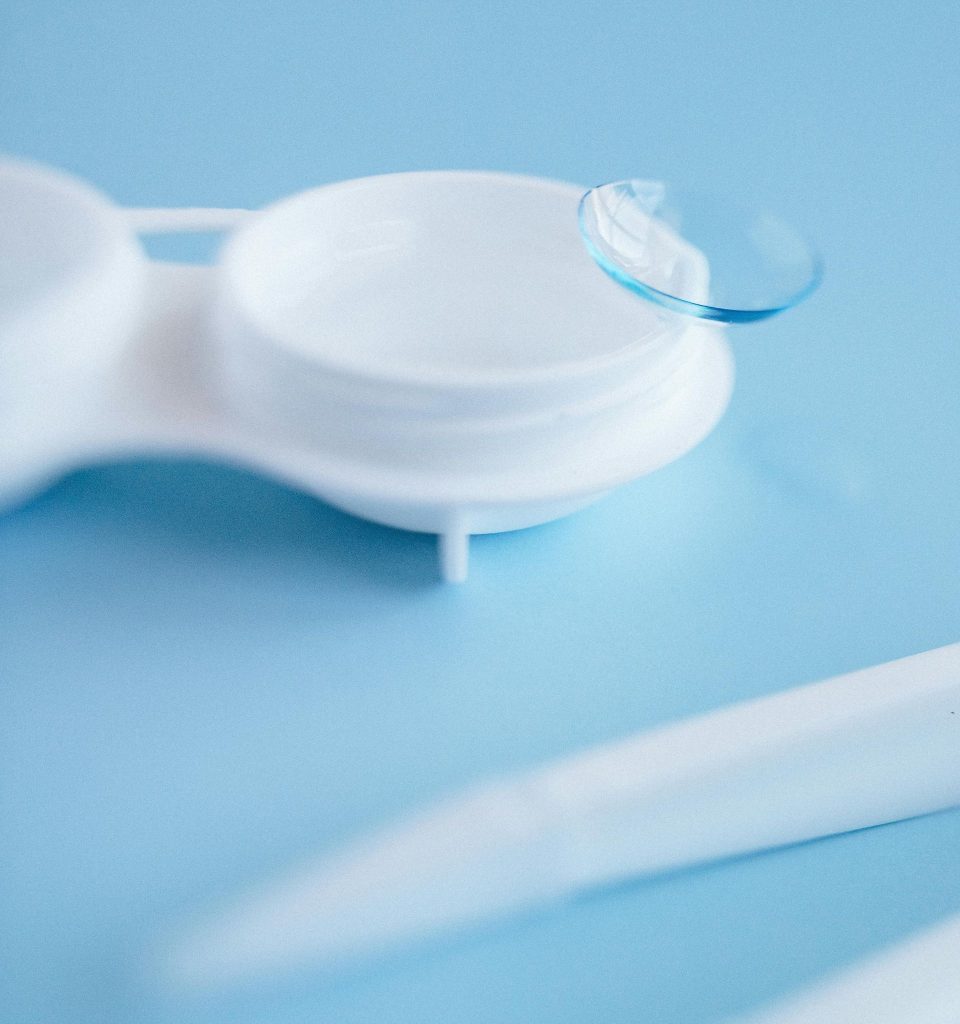![]()
If you’ve been tempted to use your eyewash solution as your contact lens solution, or think you ever might be, this post is for you.
Maybe you forgot to restock, or you’re on the road and forgot to bring your lens solutions. Whatever the reason, stop. Don’t do it. There’s a good reason why, and much more to learn.
Let’s explore this further so you can fully understand the answer and possibly prevent costly mistakes that can impact your vision now or in the future.
What Is Eye Wash Solution?
Eye wash is a simple saline solution formulated to rinse dust, dirt, pollen, and other foreign particles from your eyes. These sterile solutions are used as eye drops to clean your lenses while you wear them. You might even feel some relief when you use one.
While the eye wash solution is mild and usually safe, it is designed for temporary contact only. It does not provide the needed disinfection and lubrication that your lenses require while soaking or storing. In the same way, these solutions are not designed for prolonged contact with your lenses.
What Is Contact Lens Solution?
Contact lens solutions are made for soaking and storing contact lenses. They’re specially formulated to serve these more complex roles for maintaining contacts.
They rinse and clean your contacts, keeping them moist until you wear them again. More importantly, they disinfect your lenses while you store them. To do this, they include several ingredients:
- Cleaning Agents: These ingredients specifically clean off debris, protein deposits, and lipid films. They do this effectively when they soak your lenses.
- Disinfecting Agents: Contact lens solutions contain agents that kill bacteria, viruses, fungi, and other microorganisms that contaminate your lenses.
- Lubricating Agents: These solutions can soak lenses for a long time because they contain moist, gentle lubricating agents that keep lenses from drying up.
- Buffering Agents: These agents maintain the whole solution’s pH balance. It is formulated to be compatible with your eye’s pH level.
- Tonicity Agents: These agents ensure the solution has the correct osmotic pressure to match your eye’s environment. This means that while you wear the lenses, they don’t draw out moisture nor prevent moisture from seeping through them.
The combination of these agents or ingredients is specific to your lens type. They only differ by brand formulation. Some brands might include more lubricating agents and advertise that they’re extra-lubricating. Some brands may say they have super disinfecting power because they formulated more disinfecting agents, and so on.
Why You Shouldn’t Use Eye Wash as Contact Lens Solution

Using eye wash as a contact lens solution carries risks, and some are more significant than others:
- Lens Damage: Since eye wash solutions aren’t made to soak and store contact lenses, they may not be compatible with your lens material. This can lead to changing the shape and damaging your lenses.
- Discomfort: The lack of lubrication from eye wash solutions can make your contacts uncomfortable as the lenses become dry and gritty.
- Corneal Damage: Eye wash solutions do not lubricate the lenses. They’re not formulated to do that. When you wear inadequately lubricated lenses, you risk friction and irritation on the cornea. This can lead to more serious concerns, such as corneal cuts, ulcers, and further damage.
- Infection: Eye wash solutions are formulated to remove dirt and debris from your lenses as you wear them and temporarily relieve irritation. They are not formulated to kill the microorganisms that have accumulated on your lenses.
If you wear contact lenses contaminated by these bacteria, viruses, and fungi, you introduce them to your cornea. This can lead to serious infections and keratitis (inflammation of the cornea).
These risks are not theoretical. Several studies have highlighted the importance of proper contact lens hygiene, which includes using the right solutions. Findings show that improper contact lens hygiene practices, such as using water and incorrect solutions to store lenses, increase the risk of microbial keratitis, which can lead to blinding.
Is Water a Safe Alternative to Contact Lens Solution?
When you wear contact lenses, you should never expose them to water. Even if you’re taking a quick dip in a pool or soaking in a tub, you need to remove your lenses.
First, water contains harmful bacteria. Plus, when contact lenses absorb water, they swell. When they swell, they don’t fit correctly, exposing the cornea to abrasions, which can lead to infection.
Is There a Temporary Alternative to Contact Lens Solution?

Short answer? No. If you search online, you’ll likely find recipes for homemade saline solution. The result is advertised as an emergency saline solution for lens cleaning and storage.
While trying one of these out may be tempting, please don’t. They do not provide the necessary ingredients to store your lenses properly, and you will only expose yourself to the risks I’ve already mentioned.
If you don’t have access to contact lens solutions, the best option is to throw out your lenses and use new ones when you can, or rely on your old go-to glasses in the meantime.
Always Prioritize Eye Health
When you prioritize your eyes’ health, you won’t have to wonder if you can use eye wash as a contact lens solution. You just don’t. The risk exposure is too much compared to the inconvenience of getting actual lens solutions or the cost of buying a new set of lenses.
While we’re on it, here are additional eye hygiene reminders:
- Always replace your contact lens solutions after each nightly soak.
- Store your contacts in a clean, sterile case.
- If you feel something is different with your eyes, consult your eye doctor immediately.
- Even if you don’t, schedule regular eye examinations.
Lens hygiene is all about eye hygiene, so go all out. Invest in your eyes.


